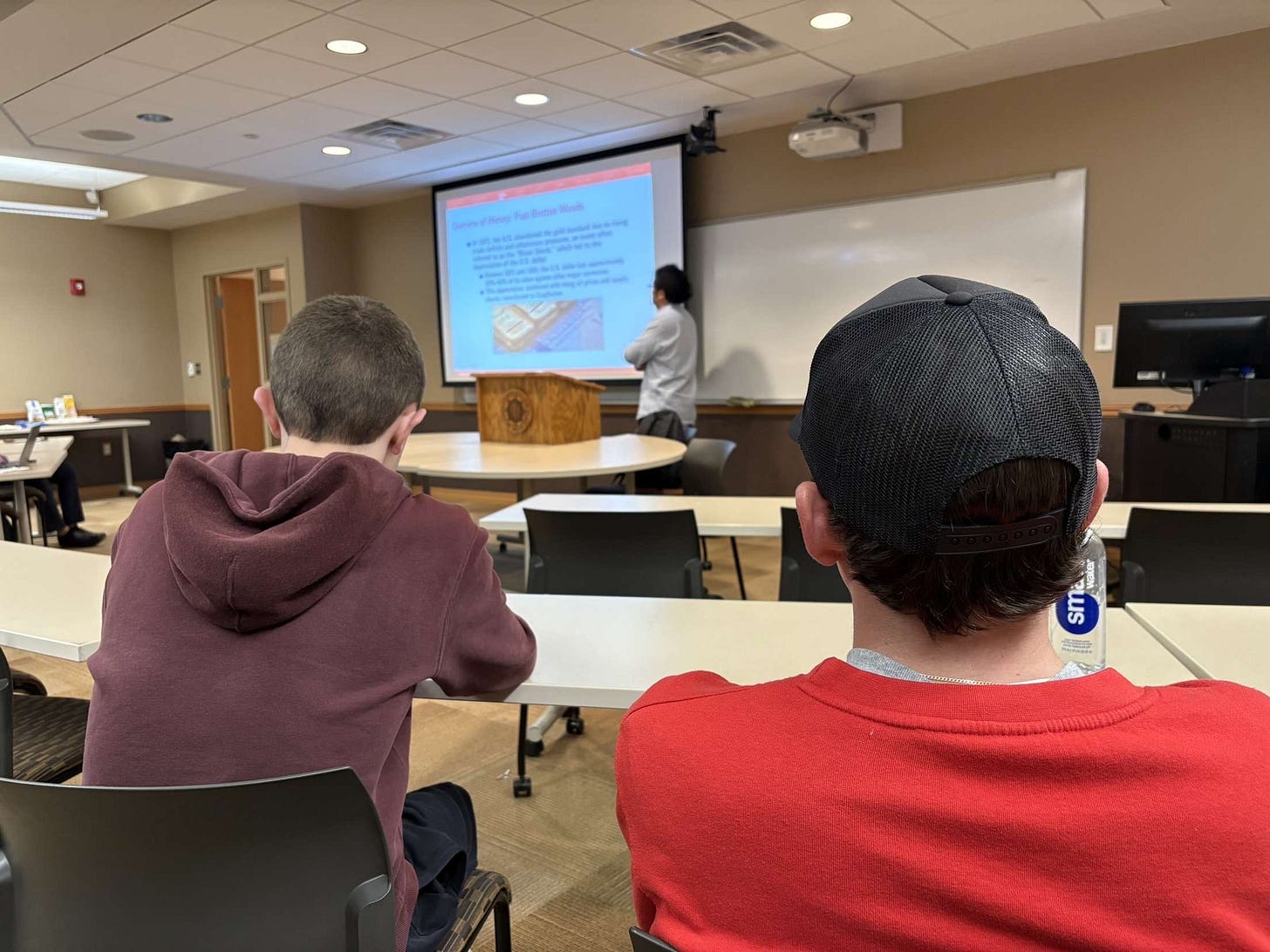'Great Decisions' to be made in the U.S. role in in the global economy
Seamus O'Sullivan - Staff Writer
The world economy is in flux, and Brian Park, Assistant Professor of Economics in the Department of Business and Economics at Monmouth College, believes understanding history is key to making sense of today’s uncertainties. During a recent Great Decisions Talk, Park led a discussion on the United States' evolving role in the global economy, exploring the policies and historical shifts that have shaped economic systems over time.
“I like talking about stuff, and I also like history,” Park said. “This was kind of up my alley, I guess, and this is a period where a lot of stuff is changing, a lot of stuff is uncertain.”
The Great Decisions series, designed to engage Monmouth College in discussions about international affairs, provided a platform for Park to connect economic history with present-day challenges. His talk touched on major economic events and policies, including trade protections, financial systems, and the ongoing debate over free markets versus government intervention.
Park pointed out that economic policies have historically had long-term consequences. For example, the Smoot-Hawley Tariff Act of 1930, a piece of protectionist legislation that raised U.S. tariffs on imported goods attempted to protect American businesses during the Great Depression. Instead, it triggered retaliatory tariffs from other nations, worsening the global economic crisis. “Sometimes, when governments act to protect their own economies, they end up making things worse,” Park said.
The conversation discussed the post-World War II economic framework established at the Bretton Woods Conference in 1944. Global leaders created a system that tied international currencies to the U.S. dollar, aiming for stability and economic cooperation. This agreement shaped global trade for decades, but its collapse in the 1970s led to the floating exchange rate system that exists today—one that continues to present challenges in an increasingly interconnected world.
Park emphasized that the modern global economy looks very different from the systems of the past, making it difficult to apply old economic theories directly. He discussed two revolutionary economists, John Maynard Keynes and Milton Friedman. “It really feels like both Keynes and Friedman wouldn’t necessarily be that happy with the way things have played out,” he said.
More than just a lecture, Park’s talk was an interactive conversation. “I also wanted to kind of talk to people to see what they think about this issue as well, while sharing my own opinions,” he said. His approach encouraged students and faculty to think critically about the policies shaping their economic future.
As global markets continue to shift, discussions like these offer insight into the forces at play. By connecting past economic decisions to current challenges, Monmouth College’s Great Decisions series provided students tools to understand and engage with the world around them.


